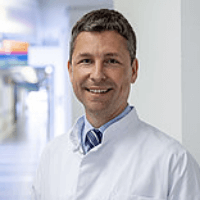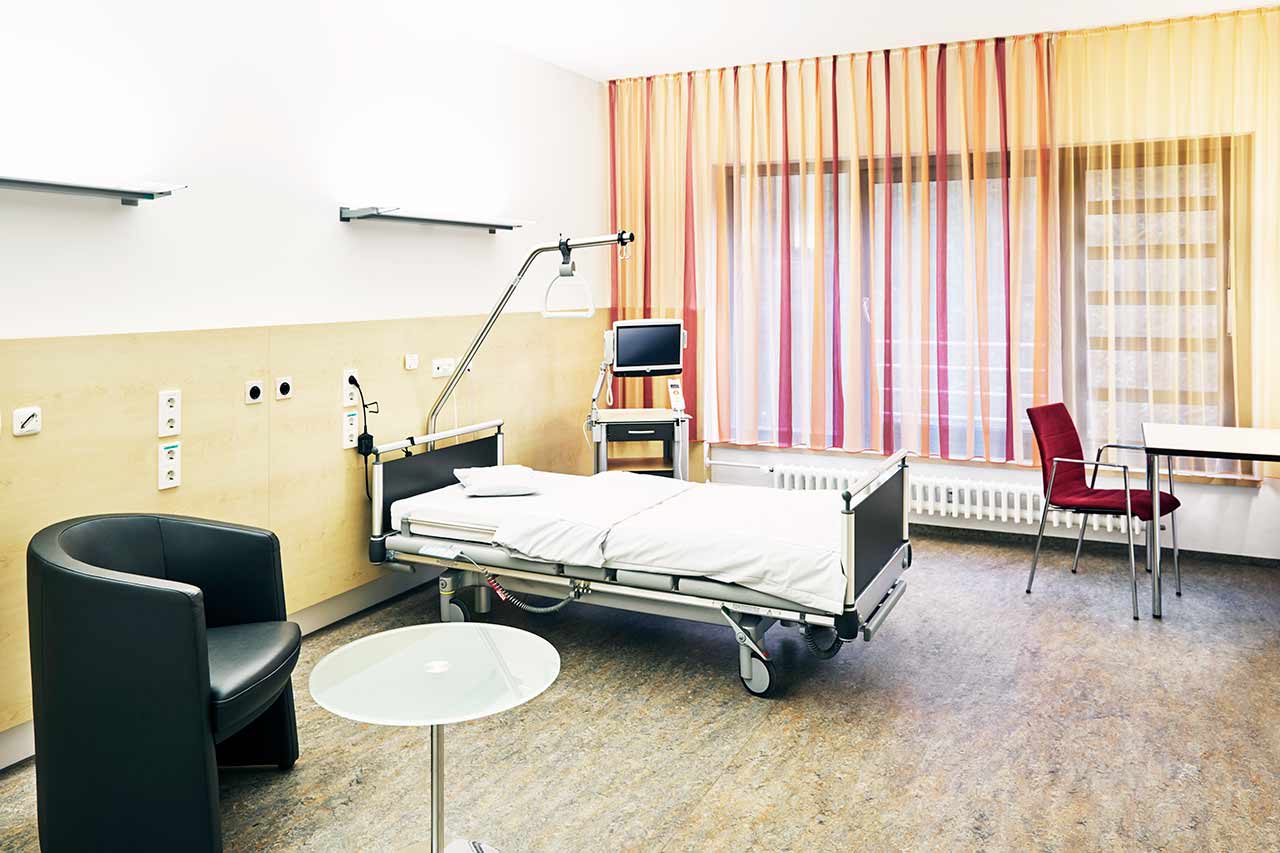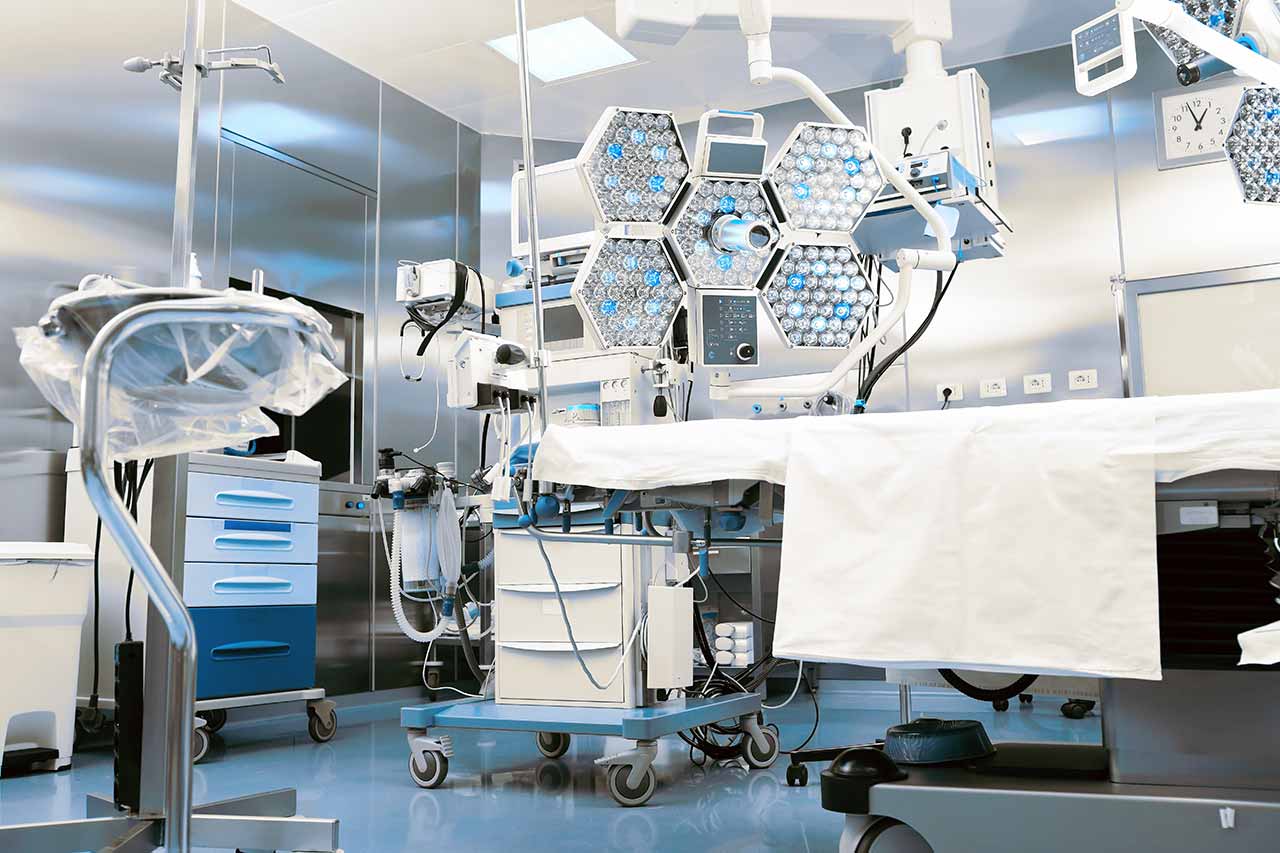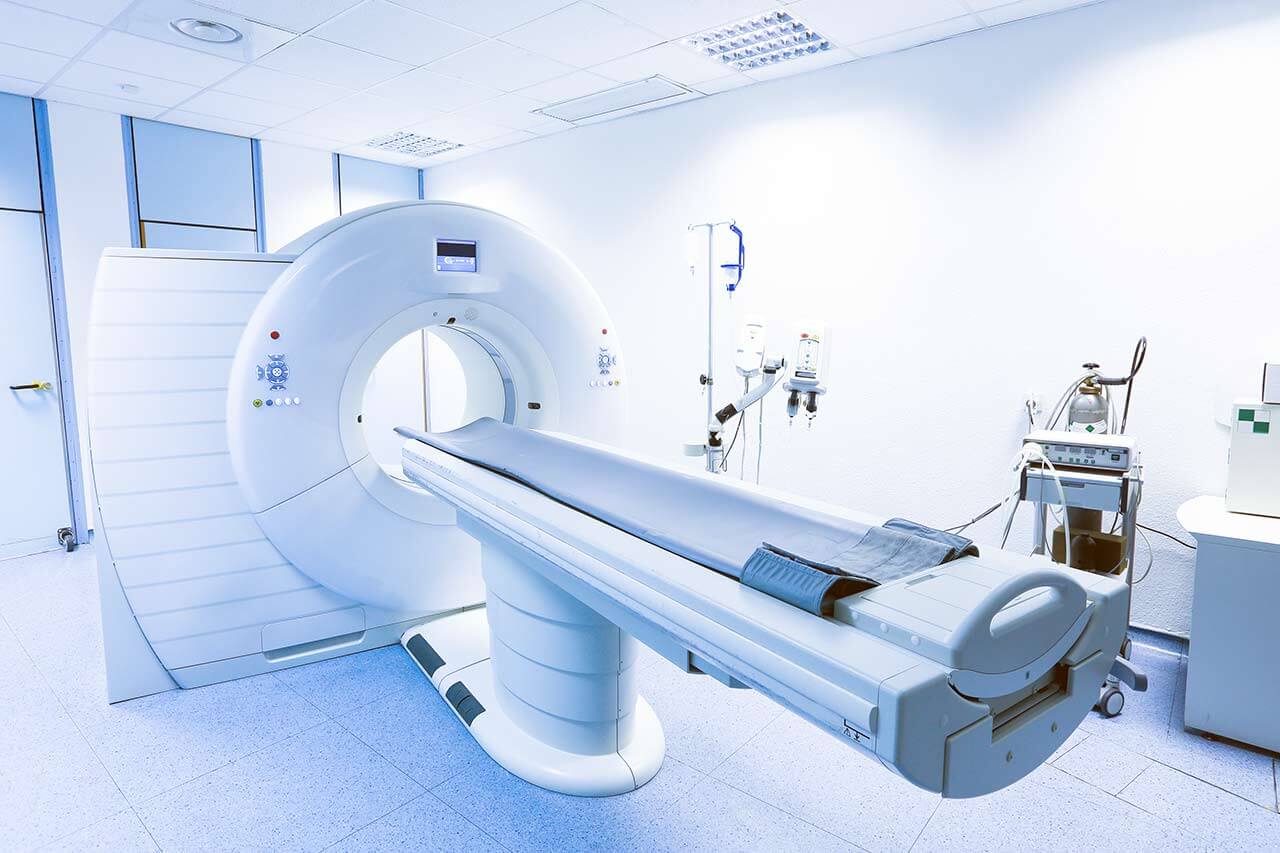
The program includes:
- Initial presentation in the clinic
- clinical history taking
- review of medical records
- physical examination
- ophthalmologic examination:
- rhinoscopy
- Shrimer test
- endoscopic intubation of the lacrimal duct
- fluorescent test
- preparation according to preoperative standard
- endoscopic tear duct probing
- symptomatic treatment
- nursing staff services
- elaboration of further recommendations
Required documents
- Medical records
Service
You may also book:
 BookingHealth Price from:
BookingHealth Price from:
About the department
The Department of Ophthalmology at the Hospital Kassel offers the full range of services in the diagnostics and treatment of patients with diseases of the eye and its appendages. The department has at its disposal 25 beds for inpatient treatment. The diagnostic examinations are performed in modern diagnostic rooms equipped with slit lamps and phoropters, an optical coherence tomography device, ultrasound scanners, systems for fluorescence angiography, etc. The department's specialists provide both conservative and surgical treatment of ophthalmic pathologies of varying severity. The availability of advanced laser equipment allows for the treatment of many eye diseases conservatively, avoiding a full-fledged operation. The department's ophthalmologists also specialize in emergency eye care. The work of the department's specialists is based on an individual approach to each patient and his clinical case, which allows to achieve excellent treatment results. The department is headed by Prof. Dr. med. Felix Treumer.
The department provides both inpatient and outpatient medical care. Upon the patient's admission to the department, the attending physician carefully studies his medical history, conducts a clinical examination and appoints all the necessary diagnostic tests, which may include visual field test using a Goldmann perimeter, pachymetry, electrooculography, electroretinography, optical coherence tomography, various advanced laser-assisted procedures, fundus fluorescein angiography, ultrasound diagnostics, corneal thickness measurement, binocular vision assessment, strabismus diagnostics, etc.
The department's specialists have extensive experience in the use of laser technologies for the treatment of eye diseases. For example, the department successfully performs laser treatment of retinal diseases (vascular occlusion, complications of diabetes mellitus), treatment of secondary cataracts using an Nd:YAG laser, selective laser trabeculoplasty and laser cyclophotocoagulation to lower elevated intraocular pressure, which can provoke the development of severe eye diseases. During laser procedures, the laser affects the target areas without harmful effects on the healthy adjacent tissues. Thus, the laser treatment allows completely avoiding the use of a scalpel, due to which the postoperative recovery period is significantly reduced.
The department also includes three state-of-the-art operating rooms, within which various eye surgical procedures are performed. Depending on the severity of the ophthalmic pathology, the surgical interventions can be performed both on an outpatient and inpatient basis. Most operations are performed under anesthesia, which is provided by a specially trained team of anesthesiologists for each patient individually. One of the most demanded surgical interventions in the department's clinical practice is ultrasound-guided artificial lens implantation using minimally invasive techniques (phacoemulsification). The procedure is most often performed to treat cataracts. The department's doctors also regularly perform operations to treat retinal detachment, vitreous hemorrhage, epiretinal gliosis and macular holes in the retina. The surgical range is complemented by interventions for elevated intraocular pressure due to glaucoma, trabeculectomy, basal iridectomy, microinvasive glaucoma surgery, surgical interventions to treat corneal diseases, aesthetic eyelid surgery, etc. When performing surgery, the ophthalmologists strictly adhere to the current clinical protocols, which practically eliminates the risk of developing any complications during or after surgery.
The departments main clinical focuses include:
- Diagnostics
- Slit lamp and phoropter eye examination
- Visual field testing, including a visual field test using a Goldmann perimeter
- Optical coherence tomography (especially for the diagnostics of retinal diseases)
- Fundus fluorescein angiography
- Fundus autofluorescence
- Ultrasound diagnostics
- A-mode ultrasound
- B-mode ultrasound
- Ultrasound biomicroscopy
- Pachymetry
- Electrooculography
- Electroretinography
- Treatment
- Conservative treatment using laser technology
- Laser treatment of retinal diseases, including vascular occlusions and complications of diabetes mellitus
- Nd: YAG laser treatment of secondary cataracts
- Selective laser trabeculoplasty to lower elevated intraocular pressure
- Laser cyclophotocoagulation to lower elevated intraocular pressure
- Surgical treatment
- Ultrasound-guided artificial lens implantation for cataracts using the very latest minimally invasive technology (phacoemulsification)
- Surgical interventions for retinal diseases using endotamponade
- Surgical interventions to lower elevated intraocular pressure due to glaucoma (trabeculectomy, basal iridectomy, microinvasive glaucoma surgery)
- Surgery for corneal diseases (keratoplasty)
- Aesthetic eyelid surgery for all eyelid diseases (for example, congenital defects, tumors, inflammation)
- Oculomotor muscle surgery
- Intravitreal injections for various forms of circulatory disorders of the eye (for example, in the case of diabetes mellitus, thrombosis, chronic inflammation)
- Conservative treatment using laser technology
- Other diagnostic and therapeutic services
Curriculum vitae
Since May 2020, Prof. Dr. med. Felix Treumer has been heading the Department of Ophthalmology at the Hospital Kassel. He studied medicine at the Universities of Rostock and Kiel. The doctor then began clinical practice in the Department of Ophthalmology at the University Hospital in Kiel, where he worked as a Senior Physician with management responsibilities specializing in vitreoretinal surgery for over 16 years. In 2013, he had his habilitation on the subject: "Clinical and experimental studies of new surgical and laser therapeutic methods for the treatment of age-related macular degeneration". The following year after habilitation, Dr. Treumer became an Extraordinary Professor. For his outstanding achievements and merits in ophthalmology, Prof. Felix Treumer was awarded the Leonard Klein Prize of the German Ophthalmological Society.
Thanks to many years of experience and participation in scientific research, the doctor has won recognition not only in Germany, but also throughout the world. Every year, Prof. Felix Treumer participates in international conferences, at which he reports on the development of new methods of treating eye diseases in patients of all age groups.
Photo of the doctor: (c) Klinikum Kassel
About hospital
The Hospital Kassel is a progressive medical facility with a huge medical team, which provides high-quality medical services in all branches of modern medicine. The hospital is part of the regional medical Gesundheit Nordhessen Holding, which unites 5 top-class medical centers, including specialized rehabilitation clinics. With 1,281 beds, the hospital is known as the largest medical complex in the federal state of Hesse. The hospital has 32 specialized departments with highly qualified doctors and specially trained nursing staff in each department. The team of 3,200 employees takes care of the health of patients. The main value for each employee is the patient's health. The professional skills of the medical staff in combination with state-of-the-art medical and technical equipment of the hospital provide excellent opportunities for the treatment of patients with pathologies of any severity.
The hospital provides treatment to over 55,000 inpatients and about 140,000 outpatients every year. Medical care is provided to both German citizens and many patients from foreign countries. Such high rates are the evidence of excellent quality of medical services and the high credit of patients' trust.
The hospital has created a wonderful atmosphere, which contributes to the rapid recovery of patients. All diagnostic and therapeutic rooms, operating rooms, as well as patient rooms are designed taking into account modern standards of European medicine in order to ensure maximum comfort of each patient. All employees working in the hospital provide the patient with understanding and respect, as well as support him in every possible way during the entire therapeutic process.
The hospital successfully implements a quality management system. It uses its own quality management system implemented by the medical Gesundheit Nordhessen Holding, as well as the IQM (Initiative Qualitätsmedizin) monitoring system. As part of healthcare quality management, the hospital annually clearly provides reports on its clinical activities, the success of diagnostics, treatment, level of patient care, etc. Thus, the hospital stands for maximum openness in its work and makes every effort to maintain the highest level of quality of medical care.
Photo: (с) depositphotos
Accommodation in hospital
Patients rooms
The patients of the Hospital Kassel live in comfortable single, double and triple rooms. The patient rooms are made in a modern design and pastel colors. A standard patient room includes an automatically adjustable bed, a bedside table, a wardrobe, a table and chairs for receiving visitors, a TV and a telephone. The patient rooms have Wi-Fi. Each room has an ensuite bathroom with shower and toilet.
The hospital also offers enhanced-comfort patient rooms. Most of these rooms have a balcony. The bathroom additionally includes a hairdryer, towels and toiletries.
Meals and Menus
The patient and the accompanying person are offered tasty and balanced three meals a day. If for some reason you do not eat all foods, you will be offered an individual menu. Please inform the medical staff about your food preferences prior to treatment. The patients staying in enhanced-comfort rooms are provided with an individual menu every day.
The hospital also has several cafes where one can have a cup of tea or coffee, taste delicious pastries, salads, main hot dishes, pizza, etc.
Further details
Standard rooms include:
Religion
The religious services are available upon request.
Accompanying person
During the inpatient program, the accompanying person can live with the patient in a patient room or a hotel of his choice. Our managers will help you choose the most suitable option.
Hotel
During an outpatient program, the patient can stay at the hotel of his choice. Our managers will help you choose the most suitable option.





